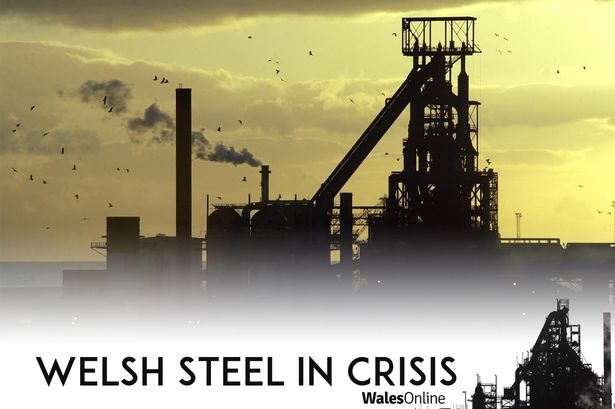Saving our steel industry will take £2bn in new technology, report says

The steel industry in Britain can be saved but it will take more radical action than any yet proposed, a new report has said.
Julian Allwood, professor of engineering and environment at Cambridge University, says the Government should support a transformation of the industry to embrace the latest technology.
Prof Allwood, who previously worked in the aluminium industry for 10 years, has led a six-year research project involving 20 researchers and looking at energy intensive industries including steel around the world.
He writes that the British steel industry has been starved of investment and faces a bleak future unless new technology is adopted.
Prof Allwood's reports comes as a response to Tata Steel's announcement that it wants to get rid of its UK business, including the steel works at Port Talbot.
Arc furnaces not enough
Sanjeev Gupta's Liberty Steel has come forward with a proposal to close one or both of the blast furnaces at Port Talbot and replace them with electric arc furnaces, which make steel from scrap.
But Prof Allwood's report suggests that simply converting the plant to using arc furnaces without further investment risks leaving the UK producing low value products that can be made as or more cheaply elsewhere.
And he also pours cold water on the idea that Port Talbot can continue making new steel with blast furnaces.
Finally, he disputes the argument that the difficulties for British steel making could be solved by cutting energy costs or raising tariffs.
He writes: "The global steel industry today has more capacity for making steel from iron ore than it will ever need again.
"It is likely that, despite the current downturn, global demand for steel will continue to grow, but all future growth can be met by recycling the existing stock of steel.
"The steel industry in Europe, with older assets and higher labour costs than in China, is therefore in a critically difficult position, regardless of local variations in energy and labour costs or the temporary protection of trade subsidies."
Prof Allwood writes that the quality of recycled steel is "generally low" but that there are opportunities to use the country's strengths in materials technologies to upgrade recycled steel to produce high quality products.
Linking steel making plants with end users could help to ensure they make the high quality and specialised products the end users need, he adds.
A £2bn pricetag
Prof Allwood estimates the long-term structural transformation he is proposing will require £1-2bn of Government support, probably through a low interest loan.
But he points out that, whatever the outcome to the Tata crisis, UK taxpayers will have to bear the costs.
"If the existing operations are to be sold, taxpayers must subsidise the purchase without the guarantee of a long term national gain," he writes.
"If the plants are closed, the loss of jobs, income and livelihoods will reverberate throughout the UK steel supply chain. The costs of lost tax income and additional benefit payments alone are estimated at £300m-£800m per year and will ultimately be born by taxpayers.
"Instead, the strategy presented here enables taxpayers to invest in a long term structural transformation. This would allow UK innovation ahead of any other large player, with the potential of leadership in a global market for used steel that is certain to treble in size."
Steel industry: 'We disagree'
Director of industry trade body UK Steel Gareth Stace described the report as a "timely and welcome intervention in the debate" and said he agreed with a lot of what is in it.
But he added: "If you look at the global demand going forward the need for virgin steel increases and the need for scrap steel increases. There are certain grades of steel that need to be made in blast furnaces, although that's changing.
But he agreed that "if the Government decides steel is vital for the economy and we need more added value niche goods then the Government needs to help us invest to get them.
"We have shiny world leading sectors and steel feeds into them."